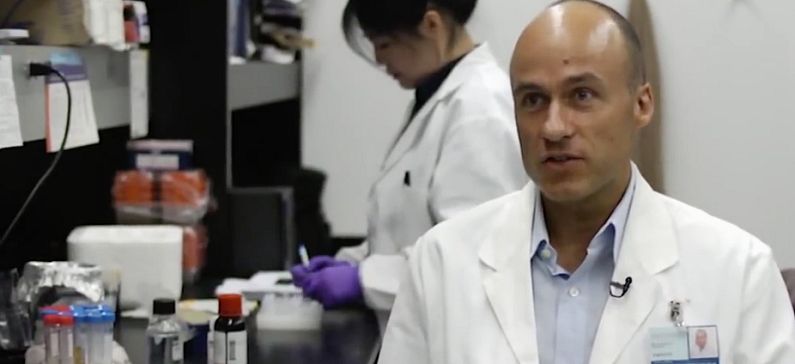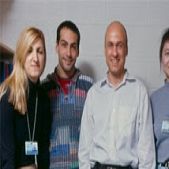
Studies mosquitos which transmit human pathogens
George Dimopoulos is a Professor at the Johns Hopkins Bloomberg School of Public Health’s Department of Molecular Microbiology and Immunology. He leads his “The Dimopoulos Group” since 2003. He has worked on mosquito vector biology since 1991, and pioneered with several discoveries in mosquito-pathogen interactions, innate immunity and microbiota. The Dimopoulos Group is an international team of scientists, that study mosquitos which transmit human pathogens such as malaria parasites and dengue virus.
He obtained his PhD, from University of Crete and he was a Postdoctoral Research Fellow at The European Molecular Biology Laboratory (EMBL). He has also been a Senior Lecturer at the Imperial College London.
“There is a great need to develop novel malaria and dengue control strategies because of the failures of current eradication approaches and the logistical difficulties to implement them. One interesting aspect of these diseases is that the mosquito that transmits the pathogens can mount immune responses against the infection that will kill a large proportion of malaria parasites and inhibit the dengue virus. My group is pursuing research to understand how the mosquito’s immune system and its intestinal microflora is capable of blocking pathogens and how we can use this knowledge to develop human pathogen resistant mosquitoes. We have already made great advances towards this goal, through several independent but synergistically interacting projects, and identified several immune factors and microbes that are responsible for conferring resistance to the parasite and the virus in their respective mosquito vectors. We are generated genetically modified super-immune mosquitoes, with an enhanced immune system, that are resistant to the malaria parasite” he mentions in his website.
A team of researchers from Johns Hopkins Bloomberg School of Public Health in Baltimore led by him, have created mosquitoes resistant to the dengue virus. Specifically, they genetically modified Aedes aegypti mosquitoes to boost their natural ability to fight infection by the virus. This might eventually help control the spread of the disease in humans. The virus kills more than 20,000 people, mostly children.
The scientists want make mosquitoes resistant to multiple types of viruses, such as Zika and Chikungunya. The genetic modification resulted in fewer mosquitoes becoming infected, and most of those that did had very low levels of dengue virus in their salivary glands, the location from which it gets transmitted to humans. The research was published in the journal PLOS Neglected Tropical Diseases, a peer reviewed journal devoted to the pathology, epidemiology, prevention, treatment and control of tropical infections.
George Dimopoulos is working on similar models in Anopheles mosquitoes which carry the parasite that causes malaria. He and his team said more research and testing is needed before these dengue-resistant mosquitoes are introduced into the wild, a process they said could take a decade or more.
He is serving as an editorial member of several reputed journals and has authored about 45 research articles/books.
Read also:
Greek scientist created mosquitoes resistant to dengue virus













